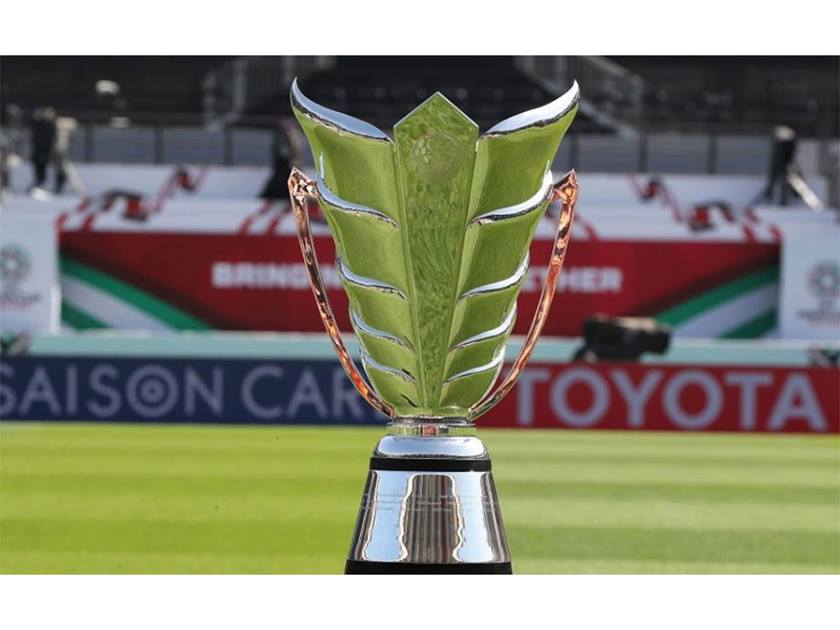ID :
659169
Tue, 05/09/2023 - 18:12
Auther :
Shortlink :
https://www.oananews.org//node/659169
The shortlink copeid
AFC Asian Cup Qatar 2023: Hosting Third Asian Cup... Qatar to Present Quantum Leap in Sports Facilities

Doha, May 09 (QNA) - The State of Qatar will host the 2023 AFC Asian Cup from Jan. 12 to Feb. 10, 2024, with the participation of renowned Asian national teams.
The 18th edition of the AFC Asian Cup will witness a new shift in terms of organization, sports facilities, and promotion, that reflects the football capabilities, technical levels, and culture of the Asian nations and their people in football. Qatar aims to present a qualitative addition to football in the world's largest continent in terms of human resources, technical revolution and its qualitative impact on football, such as the semi-automated offside technology, which was used during the 2022 FIFA World Cup Qatar.
Following Qatar's successful hosting of the 2022 FIFA World Cup Qatar - the world's biggest sports event, in November and December, all eyes will be directed towards the capital of world sports to see the new creative touches that Qatar will present to the world in the hosting of the Asian Cup in January 2024.
Following their title-winning campaign in the UAE in 2019, Qatar national football team will try to repeat their success in the 2024 tournament.
The 2023 AFC Asian Cup will be the first Asian tournament to be held in World Cup stadiums and the second to witness the participation of 24 teams after the 2019 edition in the UAE.
The third hosting of the tournament by the State of Qatar comes with a major shift from 10 teams in 1988, to 16 teams in 2011, to 24 teams in 2024.
The tournament will be held in eight stadiums, six of which are World Cup venues: Al Janoub, Education City, Al Bayt, Al Thumama, Khalifa International, and Ahmed Bin Ali, in addition to the Jassim Bin Hamad Stadiums in Al Sadd SC and Abdullah Bin Khalifa in Al Duhail SC.
The State of Qatar hosted the tournament for the first time in 1988, with the participation of ten teams according to the AFC system at the time, which were: the host Qatar, the defending champion Saudi Arabia, Japan, Iran, Kuwait, South Korea, Syria, China, UAE, and Bahrain.
Qatar hosted the tournament in two stadiums only, Hamad Bin Khalifa Stadium in Al Ahli SC and Suhaim Bin Hamad Stadium in Qatar SC. The ten teams were distributed into two groups, each group includes five teams. Saudi Arabia won their second Asian title following defeating South Korea on penalties in the final.
From the starting whistle until the closing ceremony, 24 matches were played, in which 40 goals were scored, and the Korean player Lee Tae-ho won the top scorer award with three goals.
Despite the number of participating teams, the tournament witnessed high technical levels with a distinguished public presence in the stands of Hamad Bin Khalifa stadiums. At the end of the tournament, the fans celebrated the Saudi team's victory.
The 1988 Asian Cup saw the participation of seven referees from outside the continent to officiate the matches, from England, France, Sweden, Turkey, the United States of America, Tunisia, and Algeria, in addition to the referees from the Asian continent who participated in managing the tournament matches in a scene that reflects the keenness on cooperation between the AFC and other continental federations for development in the field of arbitration.
In 2011, Qatar hosted the tournament for the second time in its history from January 7-29 and achieved a qualitative addition to the tournament in terms of the organization by holding matches in four stadiums: Khalifa International Stadium, Jassim Bin Hamad Stadium in Al Sadd SC, and Suhaim Bin Hamad Stadium in Qatar SC, and Ahmed Bin Ali Stadium in Al Rayyan SC.
The four stadiums hosted 32 matches, with the participation of 16 teams. The State of Qatar presented a highly professional model in the organization and the employment of all capabilities in presenting a distinguished version in all organizational and technical aspects. The tournament witnessed the participation of 12 arbitration crews including 36 referees and three reserve crews, most of whom are from Asia.
The 2011 edition achieved high technical success in terms of goals and the emergence of stars. The tournament witnessed the scoring of 90 goals with the South Korean player Koo Ja-cheol winning the top goal-scorers award with five goals. Japanese football star Keisuke Honda won the best player in the tournament.
The 2011 edition witnessed a large public attendance of about 4,050,366 fans inside the stadiums at a rate of 12,666 fans per match. Japan won the 2011 Asian title - their fourth title, after defeating Australia 1-0 in the final at the Khalifa International Stadium, which hosted the opening and final matches. (QNA)





